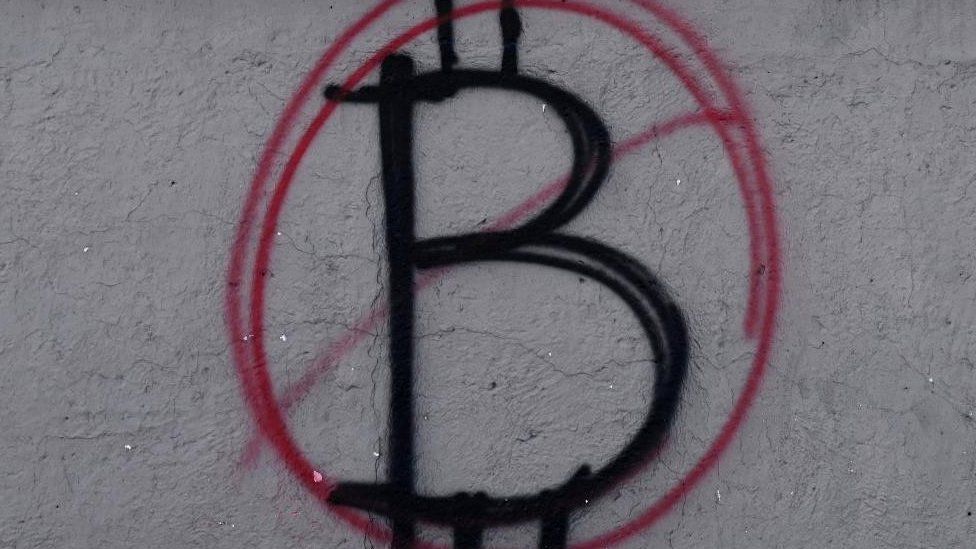
The measure was presented by the government as a way of boosting economic development and job creation.
Polls suggest Salvadorians are not prepared for the move, and the World Bank has warned against its adoption.
Analysts believe it is an “attention-seeking” move by an ‘authoritative system.”
Next week’s landmark day follows a vote by lawmakers in June to legalise the crypto-currency.
Businesses will have to accept Bitcoin or the US Dollar as payment under the country’s Bitcoin Law.
To convert dollars into Bitcoin, more than 200 cash machines have been installed in El Salvador.
To encourage citizens to use the national wallet accessible via an app, El Salvador’s government has offered $30 (PS22) worth of bitcoins for free.
Since the announcement, El Salvador has been divided.
Recent protests in San Salvador have shown a lack confidence among citizens. Many of them are still not familiar with crypto-currency.
The Central American University (UCA), in a survey, found that only 4.8% understood Bitcoin and its uses.
Over 68% of those interviewed said that they were against using crypto-currency to be a legal tender.
Over two million Salvadorian workers send money home to their families in other countries. Around 20% of the country’s GDP is made up of remittances.
People who support the move suggest that Bitcoin could make it cheaper to send money home.
Others, however, argue the opposite.
Glen Goodman, a crypto-analyst, warned that ‘an academic paper has shown that exchange costs could end up being even more expensive’.
“It’s also being imposed against small businesses’ wishes. A Chamber of Commerce survey found that 82.5% of respondents don’t want to receive Bitcoin remittances, due to its volatile and unpredictable price.
“If it isn’t broken, it would be fair to ask President [Nayib] Buke why he is trying so hard to fix it. “I have not yet heard a convincing answer,” Mr Goodman said.
Markets.com’s chief market analyst Neil Wilson says that the nation’s poorest will likely be the ones who are most affected by the move.
“El Salvador is small in terms of its economy,” he said. He said that this was a ploy to get attention from the autocratic regime.
“Bitcoin is an intrinsically poor payment method because it is very expensive for small transactions.
Bitcoin, a virtual currency that has no direct link to the real economy and which has seen large fluctuations in its value over the years, is a great example of this.
After a crackdown by China and Elon Musk’s Tesla decision not to accept it anymore as payment, the price dropped sharply in May.
However, it has since recovered, rising above $50,000 (PS36,000) for the first time in three months in late August.
